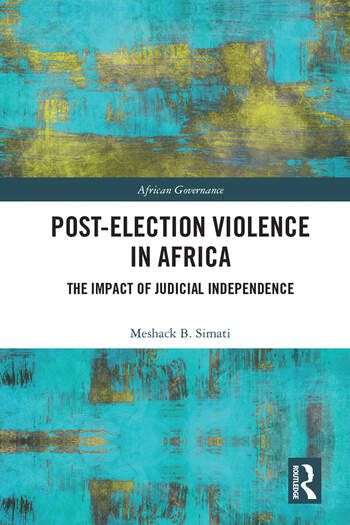
This book explores the effect of the judiciary on the incidence of post-election violence by political actors across Africa and within African countries. It examines how variation in judicial independence can constrain or incentivize election violence among democratizing states.
Using case studies and cross-national analysis, the book shows that variation in levels of judicial independence from a non-independent judiciary to a quasi-independent judiciary or from a fully independent judiciary to quasi-independent judiciary increases the likelihood of strategic use of post-election violence by non-state actors. However, the likelihood of post-election violence is significantly reduced in non-independent judiciaries or once countries’ judiciaries become fully independent. The author makes the theoretical argument that, within unconsolidated states, non-state actors that view the judiciary as semi-independent are more likely to engage in post-election violence with the purpose of creating political and professional uncertainty in order to influence assertive behaviour from judges in disputed elections. Consequently, the book argues that semi-independent judiciaries or judiciaries that are neither fully controlled by the incumbent nor fully independent from the incumbent can help explain post-election violence among unconsolidated states, all else being equal.